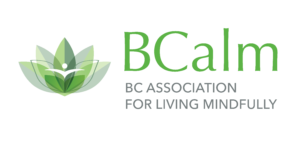The Burden of Stress
Canadian societies are faced with one of the most significant public health related challenges ever seen in history. Stress has been associated with a significant proportion of physical and mental health challenges. Depression, anxiety, sleep disorders, heart disease, chronic fatigue, substance abuse, and poor concentration and memory are just some of the many conditions associated with acute and chronic exposure to stress. The economic, public health, and sociological repercussions of this epidemic of stress are pervasive:
- 27% of all adult Canadians describe their work life as “highly stressful”
- 75-82% of all short term and long term disability claims are related to mental health challenges
- Mental health related disease is responsible for $51 billion of lost income per year in Canada
- The World Health Organization estimates that by 2020 depression will be the second largest cause of overall disease burden worldwide.
- Exposure to trauma or other significant negative stress in childhood has been shown to increase risks of substance abuse, depression, suicide, physical health challenge and reduced empathy in adulthood.
- Chronic exposure to stress is associated with a greater tendency towards aggression, violence and crime
Why Mindfulness
Mindfulness is defined as the state of being present with whatever is right here and right now, with acceptance and without judgement. Simply put, it is the art of being fully alive, with ourself, our body, our relationships, and our moments.
A popular Eastern teaching describes the two arrows that cause us suffering in life. The first arrow is the arrow that Life shoots at us. We know this arrow. It is the illness, pain, loss, old age, and death that we all face. This causes a measure of suffering. The second arrow is the arrow that we shoot at ourselves. It is the worries, the judgements, the ruminations, and the stories we tell ourselves. These, the teaching reminds us, cause far more suffering in our lives.
As we become more mindful in our lives, so we begin to bring a greater awareness to our thoughts, our beliefs, our speech and our behaviors, and the suffering that these cause to ourselves and others. We begin to make conscious choices in our steps in this life. We begin to reduce these second arrows.
Mindfulness is not about ridding us of challenging emotions, people or situations. It is rather about being present, as Jon Kabat Zinn would say, with the full catastrophe of life. It is about knowing how to navigate whatever Life might present – when to slow down, when to let go, where to draw boundaries, when to “do” and when to “be”.
